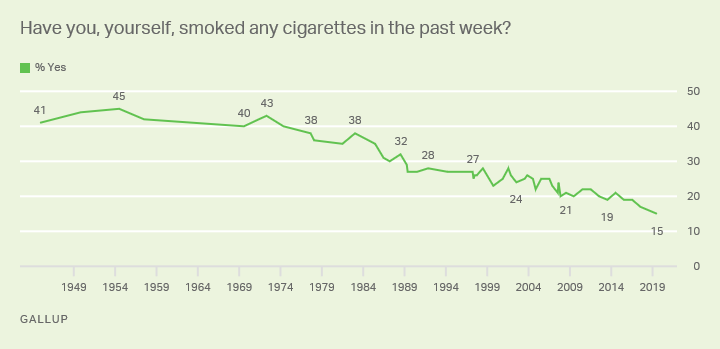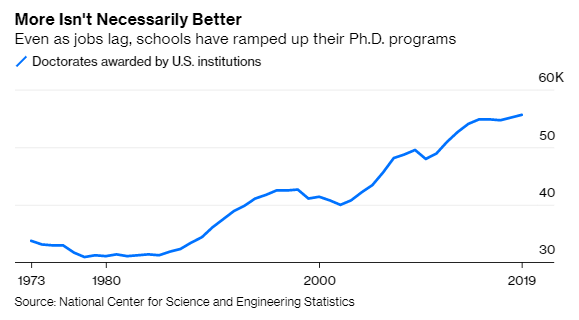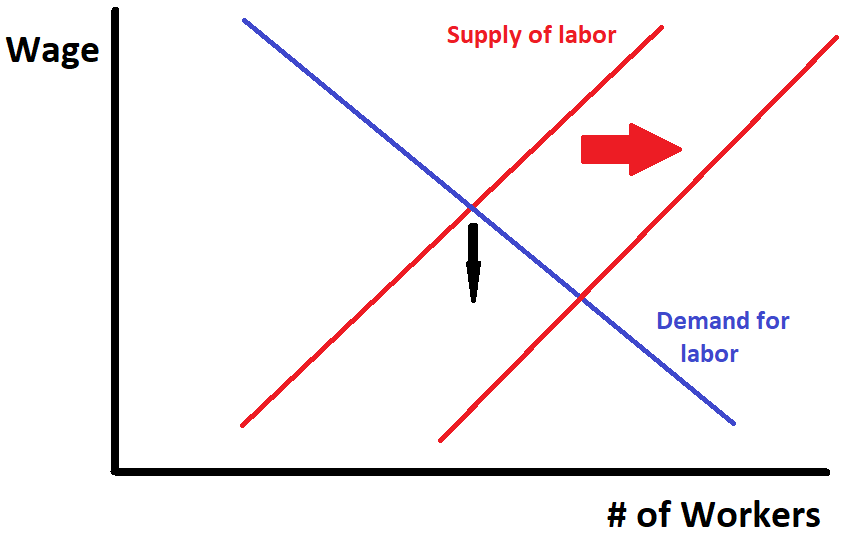
1/Let's take a break from pandemics and civil wars, and talk about...life expectancy!
noahpinion.substack.com/p/answering-th…
noahpinion.substack.com/p/answering-th…
2/Over the past month, I've been writing some "techno-optimist" posts, predicting an acceleration in tech-driven productivity growth in the next decade. Some others have been similarly optimistic.
noahpinion.substack.com/p/techno-optim…
noahpinion.substack.com/p/techno-optim…
3/BUT, some have expressed deep skepticism of techno-optimist arguments.
In a series of posts, I will address each of the counter-arguments! (Some are better than others.)
applieddivinitystudies.com/stagnation/
In a series of posts, I will address each of the counter-arguments! (Some are better than others.)
applieddivinitystudies.com/stagnation/
4/Let's talk about life expectancy.
American life expectancy has basically plateaued over the last few years, and growth in life expectancy slowed about 40 years ago.
American life expectancy has basically plateaued over the last few years, and growth in life expectancy slowed about 40 years ago.
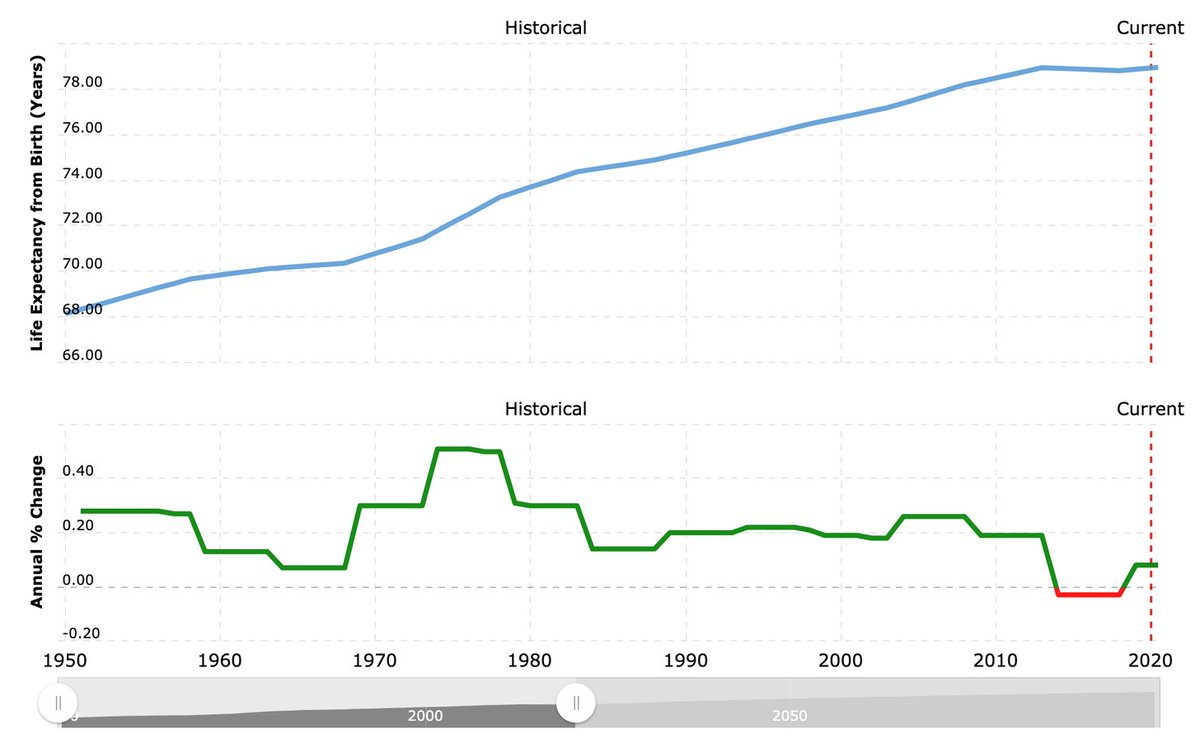
6/BUT, first of all, it's important to note that the slowdown is a U.S.-specific phenomenon!
In other developed countries, life expectancy has kept on plowing ahead. The U.S. is exceptional here.
In other developed countries, life expectancy has kept on plowing ahead. The U.S. is exceptional here.
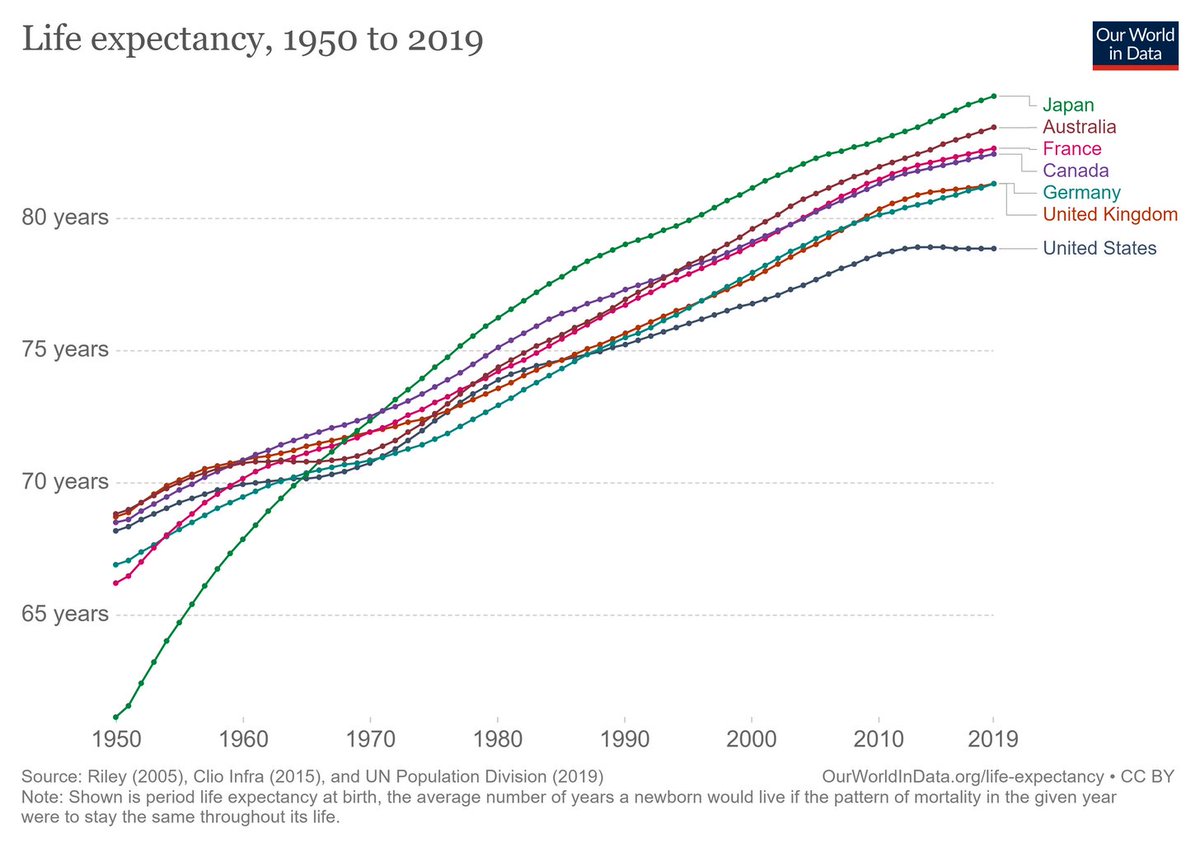
7/Presumably, other developed countries have access to similar technologies to the U.S. So the fact that the life expectancy slowdown has been U.S.-specific means that it's probably more about lifestyle and policy than about technology.
8/Next, let's talk about why life expectancy isn't a good proxy for technological progress.
During the Industrial Revolution, living standards increased by a factor of 28, while life expectancy increased only by a factor of 2.

During the Industrial Revolution, living standards increased by a factor of 28, while life expectancy increased only by a factor of 2.

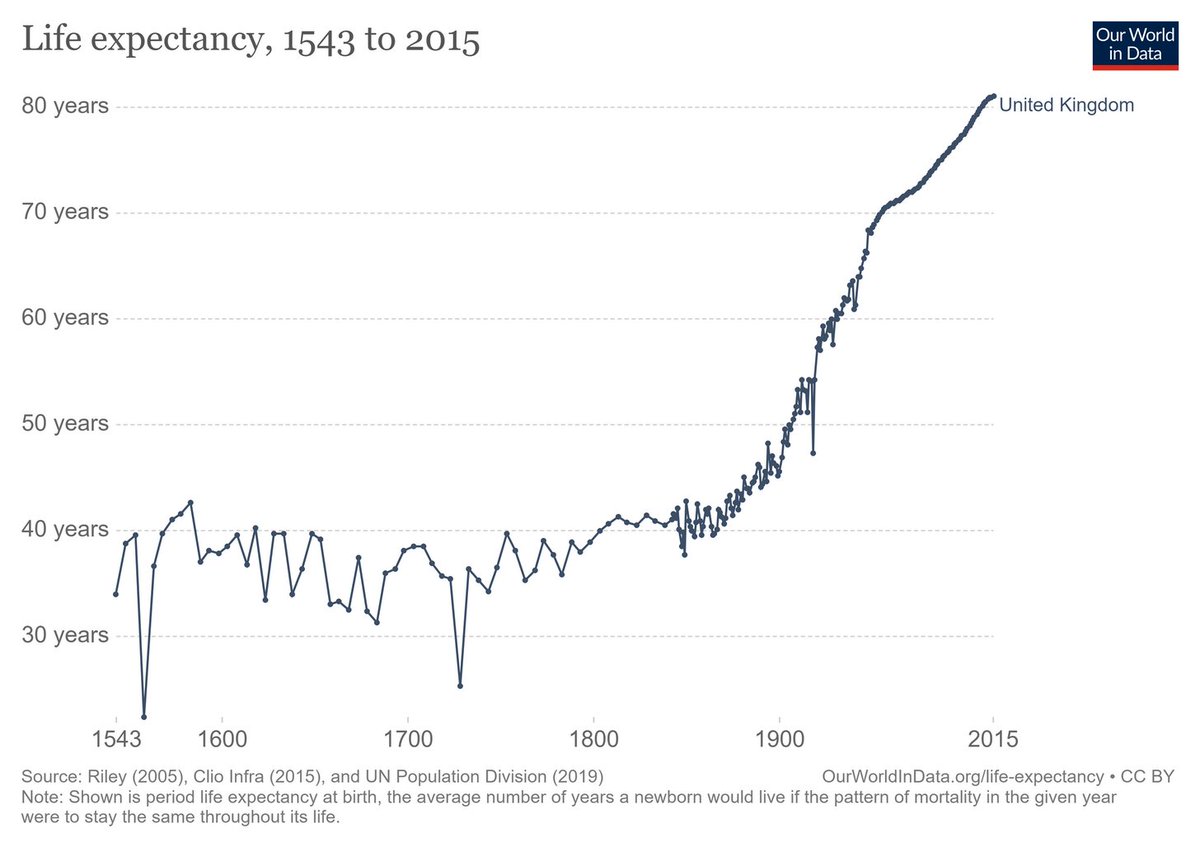
9/But in fact, even that "factor of 2" doesn't actually measure changes in *longevity*, since much of the change was actually just a big drop in infant mortality.
priceonomics.com/why-life-expec…
priceonomics.com/why-life-expec…
10/You've heard that people in the Middle Ages only lived to 35, but that's false. If you made it past the danger zone of early childhood, you could probably expect to live to about 60 or so.
bbc.com/future/article…
bbc.com/future/article…
11/Now, that's not to say the drop in infant mortality should be ignored! It's obviously HUGELY important, and was driven in large part by technology (antibiotics, vaccines, sanitation, etc.).
But it's not a measure of general technological progress.
But it's not a measure of general technological progress.
12/The big drop in infant mortality came FAST. Faster than the Industrial Revolution.
Some technologies lower infant mortality; many don't. So we shouldn't expect progress to ALWAYS lower it.
Besides, once you get close to 0, you're done.
Some technologies lower infant mortality; many don't. So we shouldn't expect progress to ALWAYS lower it.
Besides, once you get close to 0, you're done.
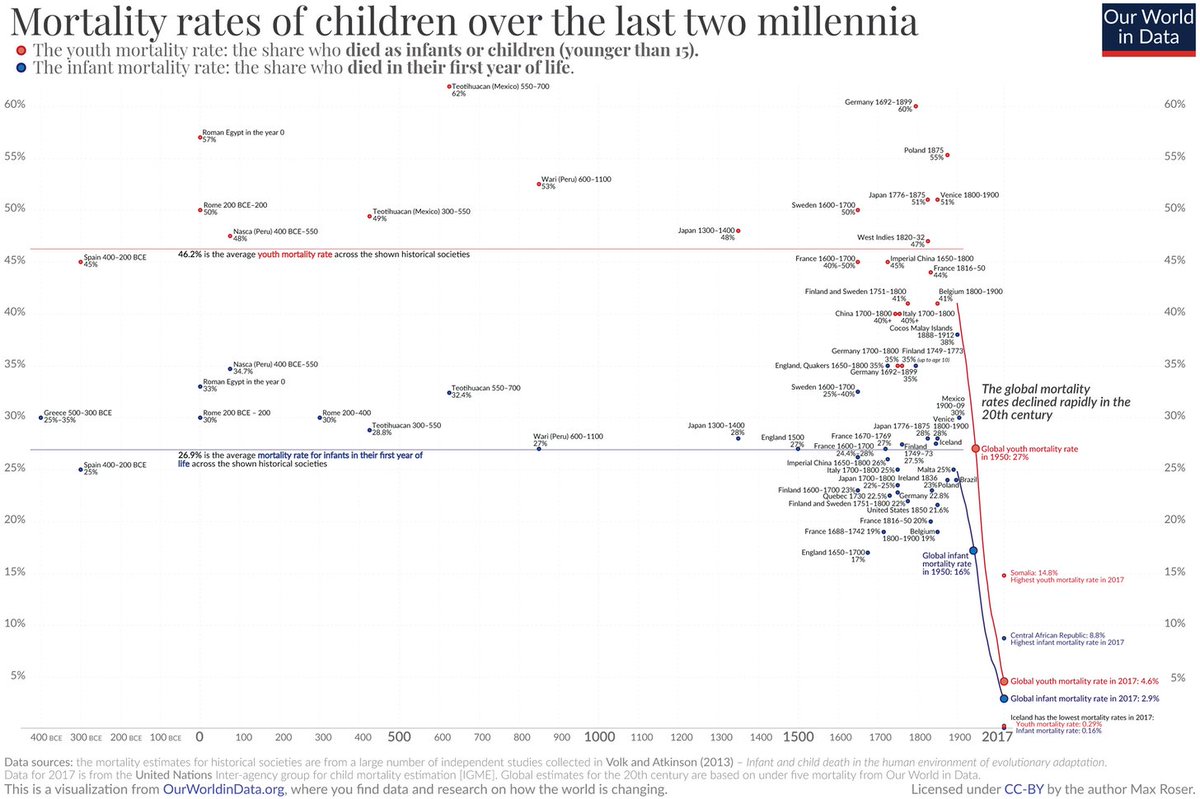
13/Now let's talk about longevity.
American life expectancy at age 45 has climbed. But for men, the climb ACCELERATED around 1970 -- the exact years of the productivity slowdown!
American life expectancy at age 45 has climbed. But for men, the climb ACCELERATED around 1970 -- the exact years of the productivity slowdown!
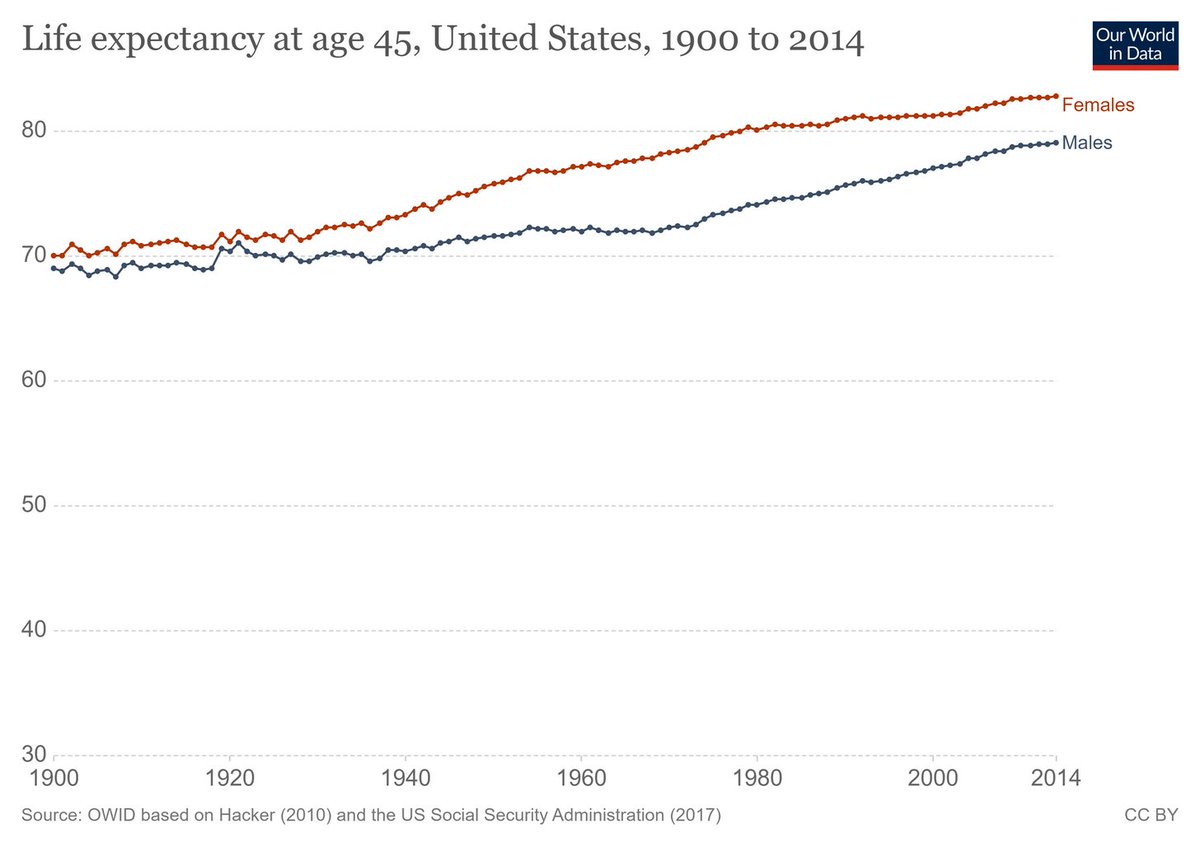
15/So anyway, all of this shows why life expectancy isn't a good proxy for technological progress. Infant mortality depends on only a few technologies, and is capped below at 0. Longevity has a lot to do with lifestyle.
16/Now of course this is just one of several techno-pessimist arguments. It's the easiest to address, actually. Next time I'll talk about why solar and batteries are a true and important technological revolution.
noahpinion.substack.com/p/answering-th…
noahpinion.substack.com/p/answering-th…
17/Anyway, if you like this sort of stuff, sign up for my Substack's free email list, and get it delivered directly to your inbox!
(end)
noahpinion.substack.com
(end)
noahpinion.substack.com
• • •
Missing some Tweet in this thread? You can try to
force a refresh
